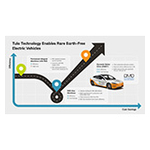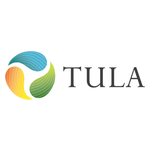SAN JOSE, Calif.–(BUSINESS WIRE)–#DMD–In 2021, Tula Technology, Inc. rang the alarm about the industry’s reliance on rare earth elements (REE) used in the manufacturing of magnets critical to traditional electric vehicle (EV) production. These raw materials, used for magnet and motor production, result in widespread environmental damage, and the sourcing of these materials are subject to supply-demand imbalances, supply-chain management issues, and escalating cost pressures. The EV industry has now acknowledged the risks of relying on rare earth materials, and industry leaders are advocating for reduced dependence on these magnets.
“We’re pleased to see broad industry alignment because this is an important issue that we have been focused on for the past several years,” said R. Scott Bailey, Tula’s President and Chief Executive Officer. “Eliminating the dependence on rare earth elements not only brings down the cost of EVs, thereby making them more accessible, it also eases concerns about the environmental challenges associated with rare earth elements.”
REEs are not rare in nature, but rarely are they concentrated in amounts that make mining environmentally sound or economically feasible. A Harvard International Review report from 2021 indicated that three tons of toxic waste are created to produce the rare earth magnets required for a single EV. While the environmental practices associated with mining have come under increased scrutiny, demand for REEs has increased dramatically due to the explosive growth in electric propulsion. Adding significant new mining capacity is environmentally unsustainable, and failing to mine more REEs is economically unaffordable.
Fortunately, new developments in electric motor control have improved the efficiency of electric vehicles that do not use permanent magnets. Tula’s Dynamic Motor Drive (DMD®) uses proprietary control algorithms that result in industry leading efficiency when operating in conjunction with externally excited synchronous motors (EESM). This motor type completely avoids the use of permanent magnets and is being implemented worldwide by OEMs to avoid rare earth elements and lower system costs. Importantly, DMD improves the efficiency of these rare-earth-free powertrains to levels beyond what is achievable with the best permanent magnet motors.
“Our DMD software solution improves system efficiency by two to three percent in EESM applications and lowers total cost,” Bailey said. “To put this impact into perspective, by 2030 the global EV fleet will consume 750 billion kilowatt hours of electricity. At 15 cents a kilowatt hour, a three percent savings would be worth over $3.4 billion annually. Perhaps even more significant, this level of energy savings would eliminate the need for roughly five coal-fired powerplants.”
Last summer, Tula implemented DMD in a Chevrolet Bolt and has proven the concept and efficiency gains to industry leaders. The DMD-equipped Bolt is now conducting tests at third party laboratories to independently validate the efficiency gains. In addition, Tula is developing an EESM powertrain and installing it into an existing Tesla Model 3 to showcase real-world efficiency gains from this simple software solution.
“EVs will play a critical role in the race to net-zero emissions by 2050. For truly sustainable transportation, an alternative to rare earth elements is needed,” Bailey said. “This is where the market is headed, and this is where Tula is focused.”
About Tula Technology, Inc.
Silicon Valley-based Tula Technology provides innovative award-winning software controls to optimize propulsion efficiency and emissions across the mobility spectrum, including electric, hybrid, gasoline, diesel, and alternative fuel vehicles. Tula’s culture of innovation has resulted in breakthrough technologies and a robust global patent portfolio of more than 400 patents issued and pending. Tula Technology is a privately held company backed by Sequoia Capital, Sigma Partners, Khosla Ventures, GM Ventures, BorgWarner and Franklin Templeton. More information is available at www.tulatech.com.
Contacts
Media: Financial Profiles
Tricia Ross
[email protected]
310-622-8226




